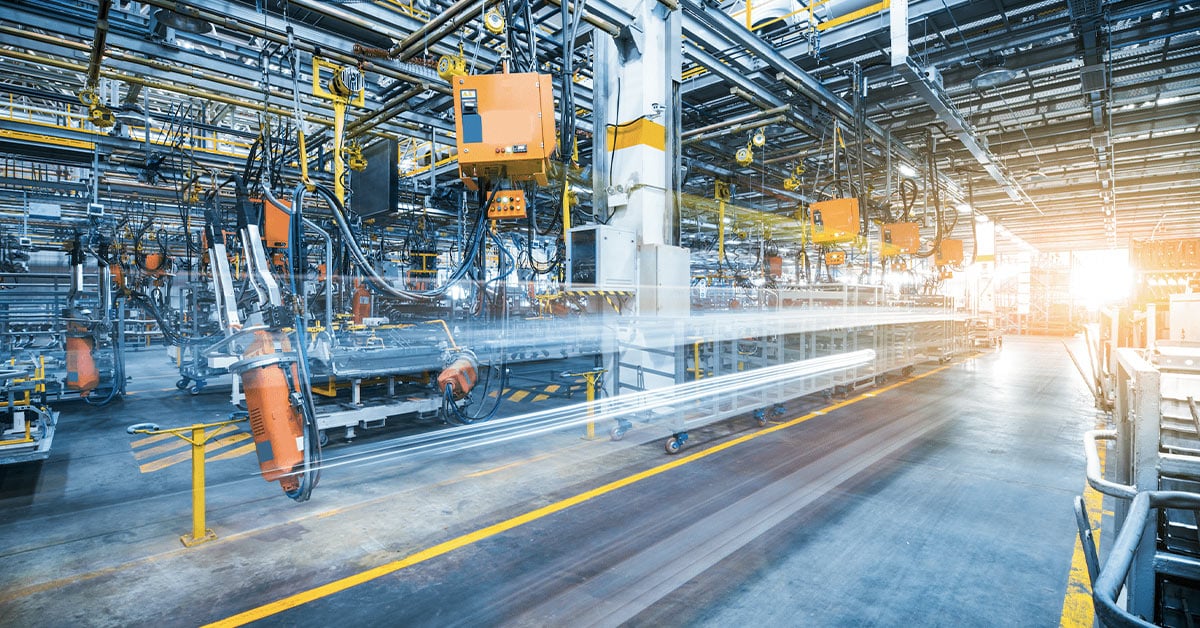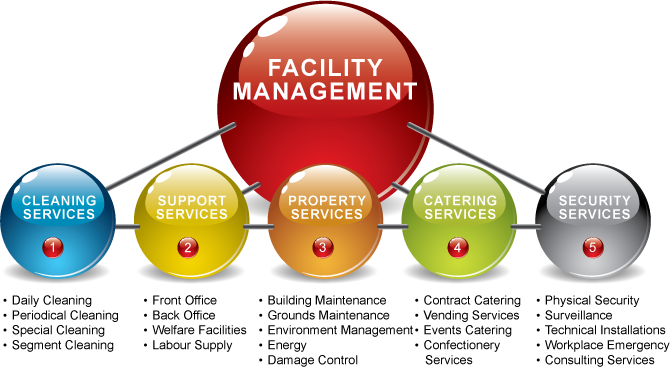Facility Management-- Streamlined Procedures and Cost Financial Savings
Facility Management-- Streamlined Procedures and Cost Financial Savings
Blog Article
Secret Trends Forming the Future of Facility Management in 2024
As we expect 2024, the landscape of center management is positioned for significant improvement, driven by a number of key patterns. The integration of smart structure modern technologies and a change in the direction of data-driven decision-making guarantee to improve functional effectiveness while focusing on sustainability in practice. Moreover, the introduction of crossbreed job versions is reshaping office settings, necessitating cutting-edge design solutions that cater to evolving staff member requirements. Amid these changes, the concentrate on passenger health proceeds to gain grip, underscoring the significance of a healthy workplace. Exactly how these fads will certainly manifest in practice stays an essential concern for industry specialists.
Smart Structure Technologies

Smart building modern technologies encompass a wide range of systems, consisting of intelligent illumination, HVAC controls, and security systems. By incorporating these systems, center supervisors can check and adjust specifications in real-time, leading to significant decreases in power waste and operational costs. Clever sensors can detect tenancy degrees and adjust illumination and temperature level accordingly, ensuring that power is just utilized when necessary.
Moreover, these innovations assist in improved data collection, permitting organizations to track use patterns and identify chances for more enhancements. The execution of smart building modern technologies not only adds to sustainability objectives but additionally develops much healthier work atmospheres that can increase worker efficiency and satisfaction.
As we move into 2024, the fostering of smart building innovations will likely speed up, showing a more comprehensive change towards even more smart, receptive, and lasting facility monitoring methods.
Data-Driven Decision Making
Increasingly, organizations are leveraging data-driven choice making to boost center monitoring practices. By utilizing data analytics, center supervisors can obtain actionable understandings that considerably boost functional performance and source allocation. The assimilation of advanced technologies, such as IoT sensors and real-time tracking systems, allows the collection of substantial amounts of data on structure performance, tenancy rates, and energy usage.
This wide range of information allows center supervisors to recognize patterns, forecast upkeep requirements, and proactively address problems before they escalate. For example, anticipating analytics can anticipate equipment failures, decreasing downtime and repair service prices. Furthermore, data visualization tools help with far better communication among stakeholders, guaranteeing that informed decisions are made collaboratively.
In addition, data-driven techniques enhance calculated preparation by allowing facility supervisors to analyze the efficiency of existing techniques and make educated selections concerning financial investments in modern technology or framework. As companies significantly prioritize operational excellence, data-driven choice making is positioned to become a foundation of effective center monitoring approaches in 2024 and beyond. Ultimately, the capacity to leverage information successfully will equip organizations to develop extra reliable, effective, and durable facilities.
Sustainability and Environment-friendly Practices
The emphasis on data-driven choice making naturally straightens with the expanding emphasis on sustainability and environment-friendly practices within facility management. As organizations significantly focus on ecological duty, center managers are leveraging analytics to enhance resource use, decrease waste, and minimize carbon footprints. This tactical technique makes it possible for the integration of energy-efficient systems, such as LED lights, clever heating and cooling controls, and renewable power sources right into facility procedures.
In addition, the execution of visit here lasting methods expands past energy consumption. Center supervisors are advertising and adopting environment-friendly products recycling initiatives to produce a round economic situation within their centers. This right here not just enhances the ecological profile of the company yet additionally fosters a culture of sustainability among employees.
Compliance with ecological laws is one more essential aspect driving the fostering of environment-friendly practices. By making use of data analytics, facility supervisors can check compliance metrics and identify locations for improvement, making sure adherence to local and global sustainability standards.
Crossbreed Job Models
A substantial change in the direction of hybrid job versions is reshaping the landscape of center administration in 2024. This standard integrates in-office and remote work, requiring a reevaluation of space utilization, resource allocation, and staff member involvement strategies. Organizations are significantly identifying the significance of versatile workspaces that satisfy varied needs and preferences.
Facility managers have to adapt by executing versatile workplace layouts that sustain joint initiatives while providing locations for concentrated job. This consists of the integration of modern technology to assist in seamless interaction and collaboration among remote and in-office workers. Smart structure options, outfitted with sensors and analytics, permit real-time tracking of area use, enabling companies to enhance their atmospheres efficiently.
In addition, hybrid work versions stress the need for effective center management that prioritizes staff member experience. This encompasses not only innovation and room style however likewise the growth of plans that advertise a balanced work-life dynamic. As companies navigate this shift, the role of facility administration comes to be critical in developing an agile work environment that cultivates performance and drives organizational success. Fundamentally, the crossbreed job model is revolutionizing center administration, motivating a positive strategy to meet the progressing demands of the workforce.
Boosted Passenger Health
As organizations embrace hybrid work versions, an enhanced concentrate on resident wellness check my source is becoming indispensable to facility management techniques. Facility Management. This change recognizes that a satisfied and healthy workforce directly impacts performance and retention rates. Facility supervisors are currently focusing on atmospheres that advertise psychological and physical wellness, incorporating aspects such as all-natural lighting, biophilic design, and easily accessible wellness sources

Modern technology plays a crucial function in this evolution. Smart structure systems can check environmental variables and readjust settings in real-time, guaranteeing optimal convenience degrees - Facility Management. In addition, feedback devices, such as occupancy sensors and employee studies, enable center managers to continually fine-tune wellness efforts based upon passenger needs.

Final Thought
In 2024, the future of facility management will be significantly influenced by the assimilation of wise building modern technologies and data-driven decision-making, cultivating boosted functional performance. Sustainability efforts will focus on eco-friendly practices, while the appearance of hybrid work models will demand flexible workplace designs. Additionally, an increased concentrate on resident health via advanced heating and cooling systems and biophilic design will certainly contribute to much healthier job settings. These fads jointly emphasize the evolving landscape of center management in feedback to contemporary challenges and possibilities.
Facility supervisors are promoting and embracing eco-friendly products reusing efforts to develop a round economic climate within their facilities.A significant shift in the direction of hybrid job designs is reshaping the landscape of center monitoring in 2024.Moreover, hybrid job models emphasize the need for effective facility monitoring that focuses on worker experience.As companies embrace hybrid work versions, an increased emphasis on owner wellness is becoming important to center management approaches.In 2024, the future of facility administration will certainly be significantly influenced by the integration of smart structure innovations and data-driven decision-making, cultivating improved functional performance.
Report this page